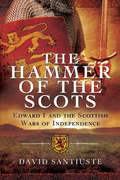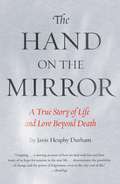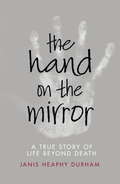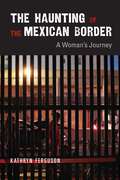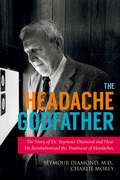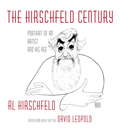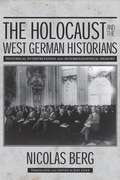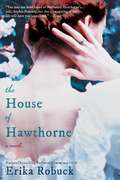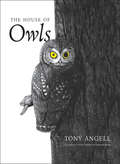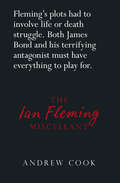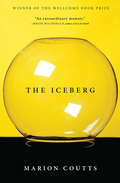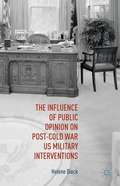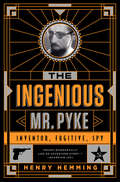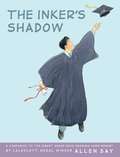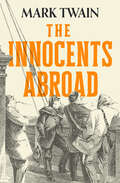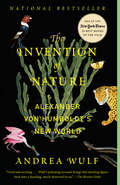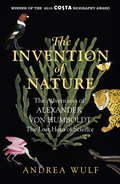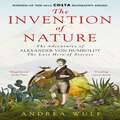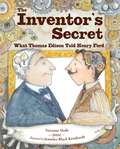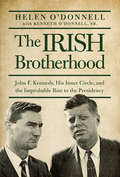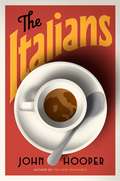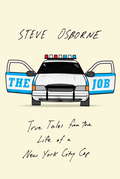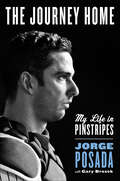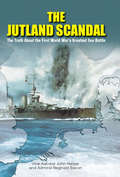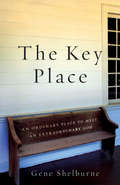- Table View
- List View
The Hammer of the Scots: Edward I and the Scottish Wars of Independence
by David SantiusteKnown to posterity as Scottorum Malleus - the Hammer of the Scots - Edward I was one of medieval England's most formidable rulers. In this meticulously researched new history, David Santiuste offers a fresh interpretation of Edward's military career, with a particular focus on his Scottish wars. This is in part a study of personality: Edward was a remarkable man. His struggles with tenacious opponents - including Robert the Bruce and William Wallace - have become the stuff of legend.There is a clear and perceptive account of important military events, notably the Battle of Falkirk, but the narrative also encompasses the wider impact of Edward's campaigns. He attempted to mobilize resources - including men, money and supplies - on an unprecedented scale. His wars affected people at all levels of society, throughout the British Isles.David Santiuste builds up a vivid and convincing description of Edward's campaigns in Scotland, whilst also exploring the political background. Edward emerges as a man of great conviction, who sought to bend Scotland to his will, yet also, on occasion, as a surprisingly beleaguered figure. He is presented here as the central character in a turbulent world, as commander and king.
The Hand on the Mirror: A True Story of Life Beyond Death
by Janis Heaphy DurhamAn unbelievably believable story about the afterlife, with documenting photographs from the former publisher of a major metropolitan newspaper. In 2004, Janis Heaphy Durham's husband, Max Besler, died of cancer at age 56. The daughter of a Presbyterian minister, she practiced her faith as she struggled with her loss. Soon she began encountering phenomena unlike anything she'd ever experienced: lights flickering, doors opening and closing, clocks stopping at 12:44, the exact time of Max's death. But then something startling happened that changed Heaphy Durham's life forever. A powdery handprint appeared on her bathroom mirror on the first anniversary of Max's death. This launched Heaphy Durham on a journey that transformed her spiritually and altered her view of reality forever. She interviewed scientists and spiritual practitioners along the way, as she discovered that the veil between this world and the next is thin and it's love that bridges the two worlds.
The Hand on the Mirror: Life Beyond Death
by Janis Heaphy DurhamIn 2004, Janis Heaphy Durham's husband, Max Besler, died of esophageal cancer at age 56. While coping with her grief, Janis soon began encountering phenomena unlike anything she had ever experienced: lights flickering, doors opening and closing, clocks stopping at 12:44, the exact time Max died. But then something startling happened that changed her life forever. A powdery handprint spontaneously appeared on her bathroom mirror on the first anniversary of Max's death. Incredibly, a similar image appeared on the second and third anniversaries as well. Clearly, something otherworldly was occurring. This launched Janis on a journey that transformed her spiritually and altered her view of reality forever. She interviewed scientists and spiritual practitioners along the way, as she discovered that the veil between this world and the next is thin, and that love is what bridges the two.
The Haunting of the Mexican Border: A Woman's Journey
by Kathryn FergusonThe Haunting of the Mexican Border is a woman&’s view of the violence and generosity of the border. For fifteen years beginning in the 1980s, Kathryn Ferguson made documentary films in Mexico&’s Sierra Madre. As she traveled south, she encountered people who were traveling north, and she learned that the border at which they converged was deadly. Drawing on her own experiences, this book explores how US immigration policies erode the lives of ordinary citizens on both sides of the border.
The Headache Godfather: The Story of Dr. Seymour Diamond and How He Revolutionized the Treatment of Headaches
by Seymour Diamond Charlie MoreyLearn the story of a man who lived the American dream and improved the quality of life for thousands of headache sufferers.The Headache Godfather traces the life of Seymour Diamond, MD, who was born in 1925, the son of Jewish immigrants from Ukraine and Slovakia, in Chicago, Illinois. Dr. Diamond revolutionized the practice of headache as a medical specialty when he opened the United States' first private headache practice, the Diamond Headache Clinic, in 1974. It quickly became a headache haven for sufferers from around the world. He also established a nonprofit organization, the National Headache Foundation, to support research for headache relief and to spread the knowledge among doctors and headache sufferers alike.At eighty-nine years of age, Dr. Diamond looks back on his battles with the Food and Drug Administration over headache treatments, the political skirmishes with those who would block his will to succeed, his globe-trotting adventures to learn and share current headache knowledge, the hundreds of thankful patients who claim that his headache treatment saved their lives, a frightening and painful malpractice lawsuit, and even a relationship with a Chicago Mafia member whose family Dr. Diamond treated early in his medical career, and who was ultimately found in the trunk of a stolen automobile, shot to death.Seymour Diamond is a living example of an individual who succeeded at living the American dream. Working several jobs while attending college and medical school, applying his intelligence, energy, and imagination to the world of headache medicine, and providing for his wife, Elaine, and their family of three daughters while building an empire of headache health, Seymour Diamond is indeed the Headache Godfather.
The Hirschfeld Century: Portrait of an Artist and His Age
by Al Hirschfeld David LeopoldI am down to a pencil, a pen, and a bottle of ink. I hope one day to eliminate the pencil. Al Hirschfeld redefined caricature and exemplified Broadway and Hollywood, enchanting generations with his mastery of line. His art appeared in every major publication during nine decades of the twentieth and twenty-first centuries, as well as on numerous book, record, and program covers; film posters and publicity art; and on fifteen U.S. postage stamps. Now, The Hirschfeld Century brings together for the first time the artist's extraordinary eighty-two-year career, revealed in more than 360 of his iconic black-and-white and color drawings, illustrations, and photographs--his influences, his techniques, his evolution from his earliest works to his last drawings, and with a biographical text by David Leopold, Hirschfeld authority, who, as archivist to the artist, worked side by side with him and has spent more than twenty years documenting the artist's extraordinary output. Here is Hirschfeld at age seventeen, working in the publicity department at Goldwyn Pictures (1920-1921), rising from errand boy to artist; his year at Universal (1921); and, beginning at age eighteen, art director at Selznick Pictures, headed by Louis Selznick (father of David O.) in New York. We see Hirschfeld, at age twenty-one, being influenced by the stylized drawings of Miguel Covarrubias, newly arrived from Mexico (they shared a studio on West Forty-Second Street), whose caricatures appeared in many of the most influential magazines, among them Vanity Fair. We see, as well, how Hirschfeld's friendship with John Held Jr. (Held's drawings literally created the look of the Jazz Age) was just as central as Covarrubias to the young artist's development, how Held's thin line affected Hirschfeld's early caricatures. Here is the Hirschfeld century, from his early doodles on the backs of theater programs in 1926 that led to his work for the drama editors of the New York Herald Tribune (an association that lasted twenty years) to his receiving a telegram from The New York Times, in 1928, asking for a two-column drawing of Sir Harry Lauder, a Scottish vaudeville singing sensation making one of his (many) farewell tours, an assignment that began a collaboration with the Times that lasted seventy-five years, to Hirschfeld's theater caricatures, by age twenty-five, a drawing appearing every week in one of four different New York newspapers. Here, through Hirschfeld's pen, are Ethel Merman, Benny Goodman, Judy Garland, Mickey Rooney, Katharine Hepburn, the Marx Brothers, Barbra Streisand, Elia Kazan, Mick Jagger, Ella Fitzgerald, Laurence Olivier, Martha Graham, et al. . . . Among the productions featured: Fiddler on the Roof, West Side Story, Rent, Guys and Dolls, The Wizard of Oz (Hirschfeld drew five posters for the original release), Gone with the Wind, The Sopranos, and more. Here as well are his brilliant portraits of writers, politicians, and the like, among them Ernest Hemingway (a pal from 1920s Paris), Tom Wolfe, Charles de Gaulle, Nelson Mandela, Joseph Stalin, Winston Churchill, and every president from Franklin D. Roosevelt to Bill Clinton. Sumptuous and ambitious, a book that gives us, through images and text, a Hirschfeld portrait of an artist and his age. From the Hardcover edition.
The Holocaust and the West German Historians
by Nicolas BergThis landmark book was first published in Germany, provoking both acclaim and controversy. In this "history of historiography," Nicolas Berg addresses the work of German and German-Jewish historians in the first three decades of post#150;World War II Germany. He examines how they perceived#151;and failed to perceive#151;the Holocaust and how they interpreted and misinterpreted that historical fact using an arsenal of terms and concepts, arguments and explanations. This English-language translation is also a shortened and reorganized edition, which includes a new introduction by Berg reviewing and commenting on the response to the German editions. Notably, in this American edition, discussion of historian Joseph Wulf and his colleague and fellow Holocaust survivor Léon Poliakov has been united in one chapter. And special care has been taken to make clear to English speakers the questions raised about German historiographical writing. Translator Joel Golb comments, "From 1945 to the present, the way historians have approached the Holocaust has posed deep-reaching problems regarding choice of language. . . . This book is consequently as much about language as it is about facts. "
The House of Hawthorne
by Erika RobuckFrom Erika Robuck, bestselling author of Hemingway's Girl, comes a brilliant new novel about a literary couple. The unlikely marriage between Nathaniel Hawthorne, the celebrated novelist, and Sophia Peabody, the invalid artist, was a true union of passion and intellect.... Beset by crippling headaches from a young age and endowed with a talent for drawing, Sophia is discouraged by her well-known New England family from pursuing a woman's traditional roles. But from their first meeting, Nathaniel and Sophia begin an intense romantic relationship that despite many setbacks leads to their marriage. Together, they will cross continents, raise children, and experience all the beauty and tragedy of an exceptional partnership. Sophia's vivid journals and her masterful paintings kindle a fire in Nathaniel, inspiring his writing. But their children's needs and the death of loved ones steal Sophia's energy and time for her art, fueling in her a perennial tug-of-war between fulfilling her domestic duties and pursuing her own desires. Spanning the years from the 1830s to the Civil War, and moving from Massachusetts to England, Portugal, and Italy, The House of Hawthorne explores the tension within a famous marriage of two soulful, strong-willed people, each devoted to the other but also driven by a powerful need to explore the far reaches of their creative impulses. It is the story of a forgotten woman in history, who inspired one of the greatest writers of American literature...From the Hardcover edition.
The House of Owls
by Tony Angell&“A charming personal account, accompanied by nearly 100 illustrations, that underscores how owls and other birds enrich our lives.&”—Kirkus Reviews Winner of the National Outdoor Book Award For a quarter of a century, Tony Angell and his family shared the remarkable experience of closely observing pairs of western screech owls that occupied a nesting box outside the window of their forest home. The journals in which the author recorded his observations, and the captivating drawings he created, form the heart of this compelling book—a personal account of an artist-naturalist&’s life with owls. Angell&’s extensive illustrations show owls engaged in what owls do—hunting, courting, raising families, and exercising their inquisitive natures—and reveal his immeasurable respect for their secret lives and daunting challenges. Angell discusses the unique characteristics that distinguish owls from other bird species and provides a fascinating overview of the impact owls have had on human culture and thought. He also offers detailed scientific descriptions of the nineteen species of owls found in North America, as well as their close relatives elsewhere. Always emphasizing the interaction of humans and owls, the author affirms the power of these birds to both beguile and inspire. &“Endearing…provides a lot of fascinating information about these reclusive creatures.&”—The New York Times Book Review &“Angell writes (and draws) with the absolute authority of one who has studied, rehabilitated, lived with and loved the animals his whole life.&”—The Wall Street Journal &“Steeped in the tradition of Alexander Wilson and John James Audubon, it blends taxonomy, ornithology, biogeography and autobiography.&”—Times Literary Supplement
The Ian Fleming Miscellany
by Andrew CookThe name Ian Fleming is synonymous with British espionage, both with his work as a naval intelligence officer in the Second World War as well as with his creation of the most famous fictional spy in literary history: James Bond. This book centres on Ian Fleming the man, his contradictions and his public and private personality. It examines the person behind the myth and how in particular he managed (unsuccessfully at first) to create a film franchise that has lasted over fifty years. It considers Fleming’s reputation as a writer, the ‘formula method’ he perfected and that formula’s reliance on the recycling of real individuals and events, as well as the occasional reliance on plagiarism. It uniquely accesses a number of recently opened government files that shed light on previously unknown wartime operations, such as the Air Ministry’s top secret ‘Operation Grand Slam’, which was used in Goldfinger.
The Iceberg: A Memoir
by Marion CouttsWinner of the Wellcome PrizeA finalist for the Samuel Johnson Prize and the Costa Award"A memoir quite unlike any other. It has the strength of an arrow: taut, spiked, quavering, working to its fatal conclusion...an extraordinary story told in an extraordinary way.”-The Sunday Times"The most heartbreaking memoir of the year.”-Independent on SundayWinner of the Wellcome Book Prize, and finalist for every major nonfiction award in the UK, including the Samuel Johnson Prize and the Costa Award, The Iceberg is artist and writer Marion Coutts’ astonishing memoir; an "adventure of being and dying "and a compelling, poetic meditation on family, love, and language.In 2008, Tom Lubbock, the chief art critic for The Independent was diagnosed with a brain tumor. The Iceberg is his wife, Marion Coutts’, fierce, exquisite account of the two years leading up to his death. In spare, breathtaking prose, Coutts conveys the intolerable and, alongside their two year old son Ev-whose language is developing as Tom’s is disappearing-Marion and Tom lovingly weather the storm together. In short bursts of exquisitely textured prose, The Iceberg becomes a singular work of art and an uplifting and universal story of endurance in the face of loss.
The Influence of Public Opinion on Post–Cold War US Military Interventions
by Helene DieckIs the American president free to wage a war? What is his leeway with respect to public opinion? The book explores these and other essential questions in understanding post—Cold War and post-9/11 conflicts: interventions characterized by their long duration in distant countries with unclear strategic interests. If public opinion often initially tolerates the President embarking on a military intervention, that support is difficult to maintain in the long term when the troops are on the battlefield and victory appears improbable. In order to maintain public support as long as possible for foreign interventions, the United States often adapts military strategy and tactics to the detriment of the desired objectives. As a result, and contrary to the predominant literature, this qualitative study argues that public opinion has major impact on military interventions.
The Ingenious Mr. Pyke: Inventor, Fugitive, Spy
by Henry HemmingThis is the extraordinary story of Geoffrey Pyke, an inventor, war reporter, escaped prisoner, campaigner, father, educator--and all-around misunderstood genius. In his day, he was described as one of the world's great minds, to rank alongside Einstein, yet he remains virtually unknown today. Pyke was an unlikely hero of both world wars and, among many other things, is seen today as the father of the U. S. Special Forces. He changed the landscape of British pre-school education, earned a fortune on the stock market, wrote a bestseller and in 1942 convinced Winston Churchill to build an aircraft carrier out of reinforced ice. He escaped from a German WWI prison camp, devised an ingenious plan to help the Republicans in the Spanish Civil War, and launched a private attempt to avert the outbreak of the Second World War by sending into Nazi Germany a group of pollsters disguised as golfers. Despite his brilliance, Pyke ultimately could not find peace, committing suicide in 1948. Yet the full scope of his story remained secret even after his death: in 2009, MI5 released a mass of material suggesting that Pyke was in fact a senior official in the Soviet Comintern. In 1951 papers relating to Pyke were found in the flat of "Cambridge Spy' Guy Burgess after his defection to Moscow. MI5 had "watchers" follow Pyke through the bombed-out streets of London, his letters were opened and listening devices picked up clues to his real identity. Convinced he was a Soviet agent codenamed Professor P, MI5 helped to bring his career to an end. It is only now, more than sixty years after his death, that Geoffrey Pyke's astonishing story can be told in full. The Ingenious Mr. Pyke is a many-faceted account of this enigmatic man’s genius, and reveals him as one of the great innovators of the last century.
The Inker's Shadow (Scholastic Press Novels)
by Allen SayFor Allen Say, life as teen in Southern California was a cold existence. His father, one of the leading hamburger salesmen in Japan, ran a booming burger business, much like McDonald's
The Innocents Abroad: Or, The New Pilgrim's Progress...
by Mark TwainThe book that made Mark Twain famous and introduced theworld to that obnoxious and ubiquitous character: the American tourist Based on a series of letters first published in American newspapers, The Innocents Abroad is Mark Twain&’s hilarious and insightful account of an organized tour of Europe and the Holy Land undertaken in 1867. With his trademark blend of skepticism and sincerity, Twain casts New World eyes on the people and places of the Old World, including London, Paris, Rome, Odessa, Constantinople, Damascus, and Jerusalem. He skewers the idiosyncrasies and pretensions of Americans abroad and delights in tormenting the local tour guides. In Lake Como, he insists that Lake Tahoe is nicer. In Genoa, he and his fellow travelers claim they&’ve never heard of Christopher Columbus. First published in 1869, The Innocents Abroad made Mark Twain a national celebrity. For the rest of the author&’s life, it outsold all his other books, and remains one of the bestselling travelogues of all time. Part satire, part guidebook, it&’s a must-read for fans of this inimitable author and anyone who has experienced the pleasure and the pain of being a tourist. This ebook has been professionally proofread to ensure accuracy and readability on all devices.
The Invention of Nature: Alexander von Humboldt's New World
by Andrea WulfThe acclaimed author of Founding Gardeners reveals the forgotten life of Alexander von Humboldt, the visionary German naturalist whose ideas changed the way we see the natural world--and in the process created modern environmentalism.NATIONAL BEST SELLEROne of the New York Times 10 Best Books of the YearWinner of the Los Angeles Times Book Prize, The James Wright Award for Nature Writing, the Costa Biography Award, the Royal Geographic Society's Ness Award, the Sigurd F. Olson Nature Writing AwardFinalist for the Andrew Carnegie Medal for Excellence in Nonfiction, the Kirkus Prize Prize for Nonfiction, the Independent Bookshop Week Book AwardA Best Book of the Year: The New York Times, The Atlantic, The Economist, Nature, Jezebel, Kirkus Reviews, Publishers Weekly, New Scientist, The Independent, The Telegraph, The Sunday Times, The Evening Standard, The SpectatorAlexander von Humboldt (1769-1859) was an intrepid explorer and the most famous scientist of his age. In North America, his name still graces four counties, thirteen towns, a river, parks, bays, lakes, and mountains. His restless life was packed with adventure and discovery, whether he was climbing the highest volcanoes in the world or racing through anthrax-infected Siberia or translating his research into bestselling publications that changed science and thinking. Among Humboldt's most revolutionary ideas was a radical vision of nature, that it is a complex and interconnected global force that does not exist for the use of humankind alone. Now Andrea Wulf brings the man and his achievements back into focus: his daring expeditions and investigation of wild environments around the world and his discoveries of similarities between climate and vegetation zones on different continents. She also discusses his prediction of human-induced climate change, his remarkable ability to fashion poetic narrative out of scientific observation, and his relationships with iconic figures such as Simón Bolívar and Thomas Jefferson. Wulf examines how Humboldt's writings inspired other naturalists and poets such as Darwin, Wordsworth, and Goethe, and she makes the compelling case that it was Humboldt's influence that led John Muir to his ideas of natural preservation and that shaped Thoreau's Walden. With this brilliantly researched and compellingly written book, Andrea Wulf shows the myriad fundamental ways in which Humboldt created our understanding of the natural world, and she champions a renewed interest in this vital and lost player in environmental history and science.From the Hardcover edition.
The Invention of Nature: The Adventures of Alexander von Humboldt, the Lost Hero of Science: Costa & Royal Society Prize Winner
by Andrea WulfWINNER OF THE 2015 COSTA BIOGRAPHY AWARDWINNER OF THE ROYAL SOCIETY SCIENCE BOOK PRIZE 2016'A thrilling adventure story' Bill Bryson'Dazzling' Literary Review 'Brilliant' Sunday Express'Extraordinary and gripping' New Scientist'A superb biography' The Economist'An exhilarating armchair voyage' GILES MILTON, Mail on Sunday Alexander von Humboldt (1769-1859) is the great lost scientist - more things are named after him than anyone else. There are towns, rivers, mountain ranges, the ocean current that runs along the South American coast, there's a penguin, a giant squid - even the Mare Humboldtianum on the moon. His colourful adventures read like something out of a Boy's Own story: Humboldt explored deep into the rainforest, climbed the world's highest volcanoes and inspired princes and presidents, scientists and poets alike. Napoleon was jealous of him; Simon Bolívar's revolution was fuelled by his ideas; Darwin set sail on the Beagle because of Humboldt; and Jules Verne's Captain Nemo owned all his many books. He simply was, as one contemporary put it, 'the greatest man since the Deluge'.Taking us on a fantastic voyage in his footsteps - racing across anthrax-infected Russia or mapping tropical rivers alive with crocodiles - Andrea Wulf shows why his life and ideas remain so important today. Humboldt predicted human-induced climate change as early as 1800, and The Invention of Nature traces his ideas as they go on to revolutionize and shape science, conservation, nature writing, politics, art and the theory of evolution. He wanted to know and understand everything and his way of thinking was so far ahead of his time that it's only coming into its own now. Alexander von Humboldt really did invent the way we see nature.
The Invention of Nature: The Adventures of Alexander von Humboldt, the Lost Hero of Science: Costa & Royal Society Prize Winner
by Andrea WulfWINNER OF THE 2015 COSTA BIOGRAPHY AWARDWINNER OF THE ROYAL SOCIETY PRIZE 2016'Dazzling' Literary Review 'Brilliant' Sunday Express'Extraordinary and gripping' New Scientist'A superb biography' The Economist'An exhilarating armchair voyage' GILES MILTON, Mail on Sunday Alexander von Humboldt (1769-1859) is the great lost scientist - more things are named after him than anyone else. There are towns, rivers, mountain ranges, the ocean current that runs along the South American coast, there's a penguin, a giant squid - even the Mare Humboldtianum on the moon. His colourful adventures read like something out of a Boy's Own story: Humboldt explored deep into the rainforest, climbed the world's highest volcanoes and inspired princes and presidents, scientists and poets alike. Napoleon was jealous of him; Simon Bolívar's revolution was fuelled by his ideas; Darwin set sail on the Beagle because of Humboldt; and Jules Verne's Captain Nemo owned all his many books. He simply was, as one contemporary put it, 'the greatest man since the Deluge'.Taking us on a fantastic voyage in his footsteps - racing across anthrax-infected Russia or mapping tropical rivers alive with crocodiles - Andrea Wulf shows why his life and ideas remain so important today. Humboldt predicted human-induced climate change as early as 1800, and The Invention of Nature traces his ideas as they go on to revolutionize and shape science, conservation, nature writing, politics, art and the theory of evolution. He wanted to know and understand everything and his way of thinking was so far ahead of his time that it's only coming into its own now. Alexander von Humboldt really did invent the way we see nature.Recorded by arrangement with Doubleday, an imprint of the Knopf Doubleday Publishing Group, a division of Penguin Random House LLC; (P)2015 Highbridge, a division of Recorded Books
The Inventor's Secret: What Thomas Edison Told Henry Ford
by Suzanne SladeBoth Thomas Edison and Henry Ford started off as insatiably curious tinkerers. That curiosity led them to become inventors—with very different results. As Edison invented hit after commercial hit, gaining fame and fortune, Henry struggled to make a single invention (an affordable car) work. Witnessing Thomas's glorious career from afar, a frustrated Henry wondered about the secret to his success. This little-known story is a fresh, kid-friendly way to show how Thomas Edison and Henry Ford grew up to be the most famous inventors in the world—and best friends, too.
The Irish Brotherhood: John F. Kennedy, His Inner Circle and the Improbable Rise to the Presidency
by Helen O'DonnellThe Irish Brotherhood is the history of Jack Kennedy's original political inner circle. Led by Bobby Kennedy, Kenny O'Donnell, Larry O'Brien, and Dave Powers they were tough minded, Irish-Catholic guys who were joined together by a common ambition to see Jack Kennedy through to the White House. War veterans who were young, ambitious, and they wanted their country back. Jack Kennedy was their man, their leader. No matter that he was Irish, Catholic, and his "Old Man" had made as many enemies as friends - Jack had ambition, brains, a special charisma. To win the White House would be a victory not only for Jack Kennedy, but for the downtrodden. They collectively decided that if the political powers would not let them in willingly then they would kick the door down. At the center of the story is Kenny O'Donnell, Jack Kennedy's tough talking, no-bullshit, top political aide. Jack recognized he needed Kenny's blue collar, political genius and Kenny recognized something special in Jack.The Irish Brotherhood describes what it was like to be inside the Kennedy inner circle. With Bobby, who was determined to make his own mark apart from his famous family, his life-long struggle, never won, never lost. With Joe, as Kenny and Larry prove to him that their outsider approach was going to work after Jack's crushing victory in '58, which sets the stage for the Presidential campaign to come. This book is a missing piece of the story of the improbable rise to power of John F. Kennedy and further fills out the picture of the man revealing that Jack Kennedy was at heart a politician. He enjoyed the rough and tumble and despite his personal issues, or perhaps because of them, he became determined to succeed beyond anybody's expectations. It is intriguing an indelible portrait of the son, brother, friend, Congressman, Senator and President.
The Italians
by John HooperA vivid and surprising portrait of the Italian people from an admired foreign correspondentHow can a nation that spawned the Renaissance have produced the Mafia? How could people concerned with bella figura (keeping up appearances) have elected Silvio Berlusconi as their leader--not once, but three times? Sublime and maddening, fascinating yet baffling, Italy is a country of seemingly unsolvable riddles.John Hooper's entertaining and perceptive new book is the ideal companion for anyone seeking to understand contemporary Italy and the unique character of the Italians. Digging deep into their history, culture, and religion, Hooper offers keys to understanding everything from their bewildering politics to their love of life and beauty. Looking at the facts that lie behind the stereotypes, he sheds new light on many aspects of Italian life: football and Freemasonry, sex, symbolism, and the reason why Italian has twelve words for a coat hanger, yet none for a hangover.Even readers who think they know Italy well will be surprised, challenged, and delighted by The Italians.
The Job
by Steve Osborne"HOW YA DOIN'?" With these four syllables, delivered in an unmistakably authentic New York accent, Steve Osborne has riveted thousands of people at the legendary storytelling venue The Moth (and many tens of thousands more via YouTube) with his hilarious, profane, and touching tales from his twenty years as an NYPD street cop. Steve Osborne is the real deal, people: the tough, streetwise New York cop of your dreams, one with a big, big heart. Kojak? NYPD Blue? Law & Order? Fuggedaboudem! The Job blows them out of the water. Steve Osborne has seen a thing or two in his years in the NYPD--some harmless, some definitely not. In "Stakeout," Steve and his partner mistake a Manhattan dentist for an armed robbery suspect, and reduce the man to a puddle of snot and tears when questioning him. In "Mug Shot," the mother of a suspected criminal makes a strange request and provides a sobering reminder of the humanity at stake in his profession. And in "Home," the image of Steve's family provides the adrenaline he needs to fight for his life when assaulted by two armed and violent crackheads. From stories about his days as a rookie cop to the time spent patrolling in the Anti-Crime Unit--and his visceral, harrowing recollections of working during the weeks after 9/11--The Job: True Tales from the Life of a New York City Cop captures the humanity, the absurdity, and the dark humor of police work, as well as the bravery of those who do it. These stories will speak to those nostalgic for the New York City of the 1980s and '90s, a bygone era when the city was a crazier, more dangerous (and possibly more interesting) place.From the Hardcover edition.
The Journey Home: My Life in Pinstripes
by Gary Brozek Jorge PosadaThe legendary New York Yankee catcher tells the incredible story of his personal journey, offering an unexpected, behind-the-plate view of his career, his past, and the father-son bond that fueled his love of the game.For seventeen seasons, the name Jorge Posada was synonymous with New York Yankees baseball. A fixture behind home plate throughout the Yankees biggest successes, Jorge became the Yankees' star catcher almost immediately upon his arrival, and in the years that followed, his accomplishments, work ethic, and leadership established him as one of the greatest Yankees ever to put on the uniform.Now, in this long-awaited memoir, Jorge Posada details his journey to home plate, sharing a remarkable, generational account of his journey from the ball fields of Puerto Rico to the House that Ruth built. Offering a view from behind the mask unlike any other, Jorge discusses the key moments and plays that shaped teams and forged a legacy that came to define Yankee baseball for a generation. With pitch-by-pitch recall, Jorge looks back across the years, explaining how—as part of the Core Four alongside Derek Jeter, Andy Pettitte, and Mariano Rivera—he helped to reestablish the Yankees as a dynasty and win five World Series.Going beyond his all-star career, Jorge also shares his life in full for the first time, examining how his remarkable journey to the big leagues began in the most unexpected of ways. Digging into his cultural roots in Puerto Rico, the Dominican Republic, and Cuba, Jorge illuminates three generations of cherished father-son relationships that have made him the man he is today. At the center is the deep bond he shares with his father and namesake, Jorge Sr, who escaped Cuba and would eventually mold his son to be a ball player, honing his talent and instilling in him the drive necessary to fulfill his childhood dream of playing in the Bronx.Complete with sixteen pages of color photographs, this touching and earnest memoir is a testament to hard work and a celebration of the generational gift of baseball between fathers and sons.
The Jutland Scandal: The Truth About the First World War's Greatest Sea Battles
by John HarperThe Royal Navy had ruled the sea unchallenged for 100 years since Nelson triumphed at Trafalgar. Yet when the Grand Fleet faced the German High Seas Fleet across the grey waters of the North Sea near Jutland the British battleships and cruisers were battered into a draw, losing far more men and ships than the enemy. The Grand Fleet far outnumbered and outgunned the German fleet so something clearly had gone wrong. The public waited for the official histories of the battle to be released to learn the truth, but month after month went by with the Admiralty promising, but failing, to publish an account of Jutland. Questions were raised in Parliament (twenty-two times) yet still no official report was produced, due to objections from Admiral Beatty. This led to Admiral Bacon producing his own account of the battle, called The Jutland Scandal in 1925. Two years later the man instructed to write the official report, Rear-Admiral Harper, decided to publish his account independently, under the title The Truth About Jutland. Together, these two books lay bare the facts about Jutland and reveal the failings of senior officers and the distortions of the early historians. Produced as one volume for the first time, this book tells the truth about the scandal that developed following the largest battle ever fought at sea.
The Key Place: An Ordinary Place to Meet an Extraordinary God
by Gene ShelburneHave you found some nook on this planet where God seems to be especially present for you? A place where he whispers in your ear or tugs at your heart? If you have, then you will enjoy retreating with Gene Shelburne and eavesdropping on his reflections in such a place.When I bought the tiny house my mother grew up in, I thought I was preparing a retirement home for my aging parents. When a brain tumor robbed me of my mother, that dream died. Little did I know then how much the Lord would bless me as this isolated getaway became the perfect place for me to retreat from my hectic world. During quiet days beside our creek I could read and rest and ponder life, and I found that God whispered to me there in a way he seldom did at home. The truths that surfaced in that special place found their way onto the pages of this book.
